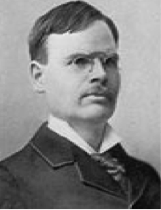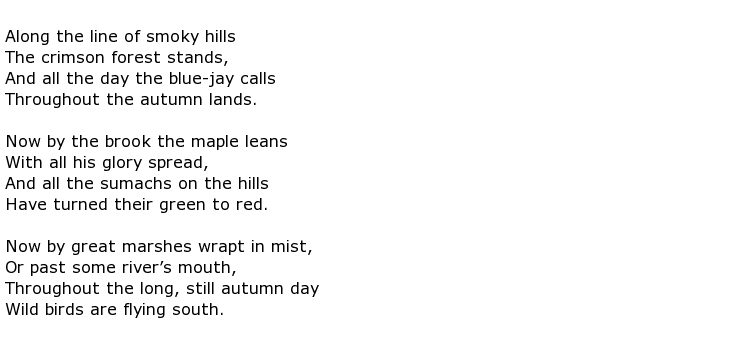 William Wilfred Campbell was a Canadian writer of the late 19th and early 20th centuries who was, for a time, an Anglican minister. His brief spell in the ministry dramatically affected his views on religion and he demonstrated this with a controversial series of articles in the Toronto Globe which attracted a great deal of negative reaction from the paper’s readers. He was known as one of the “Confederation Poets” and much of his work was in the form of verse drama, an example being the long piece called Mordred and Hildebrand. While continuing to write poetry he worked for many years as a civil servant in various departments.
William Wilfred Campbell was a Canadian writer of the late 19th and early 20th centuries who was, for a time, an Anglican minister. His brief spell in the ministry dramatically affected his views on religion and he demonstrated this with a controversial series of articles in the Toronto Globe which attracted a great deal of negative reaction from the paper’s readers. He was known as one of the “Confederation Poets” and much of his work was in the form of verse drama, an example being the long piece called Mordred and Hildebrand. While continuing to write poetry he worked for many years as a civil servant in various departments.
Campbell’s place and date of birth is not certain but most accounts of his life put him down as being born on the 15th June 1860 in Newmarket, Upper Canada. This is now in modern-day Ontario. His father was an Anglican minister whose job entailed moving around the region in order to set up and administer new frontier parishes across the whole of Canada West. By the time that William reached the age of eleven the family were relatively settled though and he attended high school in Owen Sound, close to the town of Wiarton, Ontario.
It was a relatively happy childhood and William was able to spend a little time teaching in his local school before moving on to the University of Toronto’s University College in 1880. Two years later he went to Wycliffe College and then, after one further year, he attended the Episcopal Theological School in Cambridge, Massachusetts. In 1884 Campbell was married and his wife bore him four children.
A year after his marriage Campbell joined the Episcopal priesthood and was appointed the minister of a small parish in New England. He remained in this post four three years before going back home to Canada, this time to New Brunswick. He had already seen at least three of his collections of poetry published, including Snowflakes and Sunbeams in 1888 and Lake Lyrics and Other Poems a year later. These contained popular, lyrical pieces of work which were much loved by the Canadian public. A good example is the poem Indian Summer, reproduced here:

In stark contrast though his views on religion were causing inner turmoil and he had no choice but to resign from the ministry in 1891, citing a “crisis of faith” as the reason.
He joined the civil service in Ottawa and, in 1893, was working for the Department of Militia and Defence. Writing was still important to him and he joined two others – fellow Confederation Poets Archibald Lampman and Duncan Campbell Scott – in compiling a literary column and essays for the Toronto Globe. They wrote under the title At the Mermaid Inn. Campbell was struggling financially at this time and involvement in the paper helped him to stay solvent. Unfortunately this was a short-lived venture as Campbell’s heterodox views did not sit well with his collaborators and with the reading public. He generated much negative reaction with his assertion that the cross was a mythical symbol. Campbell acknowledged that he had upset some readers and apologised for “overestimating their intellectual capacities”, but this did little to smooth the controversy that his writing had created.
Perhaps in contrast to many Americans and Canadians at that time, Campbell actually advocated British imperialism and he had two collections of poetry, supporting his views, published: Poems of loyalty by British and Canadian authors was published in London in 1913 and, the same year The Oxford book of Canadian Verse came out in Toronto. He edited the latter collection and favoured some of his own work ahead of that by, perhaps, more able Canadian poets.
He took up residence in an old stone farmhouse close to Ottawa in 1915 but, alas, did not survive long here. He contracted pneumonia during the winter of 1917 and died on the morning of 1st January 1918. He was 57.

